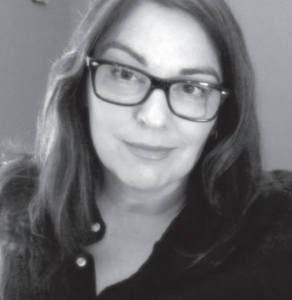Colloquium: Marcy Lascano, University of Kansas
 Biography:
Biography:
Marcy Lascano is professor of philosophy at the University of Kansas. Her research concerns issues in metaphysics and philosophical theology in the 17th and 18th century. Her current research focuses on the works of women philosophers, including Margaret Cavendish, Anne Conway, Damaris Masham, Mary Astell, and Emilie du Châtelet. She has published articles in British Journal for the History of Philosophy, Feminist Interpretations of Mary Astell, Philosophy Compass, The Routledge Companion to the Seventeenth Century, and Women on Liberty, 1600-1800. She is a co-editor, with Christia Mercer, Andrew Arlig, and Jasper Reid, on a new edition and translation of Conway’s Principles of the Most Ancient and Modern Philosophy, and co-editor with Lisa Shapiro on Early Modern Philosophy: An Anthology of Primary Sources (under contract with Broadview Press). She also has a book project which focuses on the metaphysical views of Margaret Cavendish, Anne Conway, Damaris Masham, Mary Astell, and Emilie Du Châtelet. She was awarded an NEH Fellowship for 2015-2016 to work on the project.
MARGARET CAVENDISH AND EARLY MODERN EXPERIMENTAL PHILOSOPHY: BOYS THAT PLAY WITH WATERY BUBBLES OR FLING DUST INTO EACH OTHER’S EYES, OR MAKE A HOBBYHORSE OF SNOW:
ABSTRACT
In the seventeenth century experimental philosophy was introduced through the works of Bacon, Hooke, Boyle, Power, and others. The advocates of the new science promised to divulge the inner workings of nature and to help man overcome his painful state by means of controlling nature. The new sciences of mechanism and corpuscularism were to be based on objective experiments that would reveal the inner workings of creatures and the nature of the sun, moon, and stars. These experiments were done with new and improved telescopes and microscopes. One early critic of the new experimental philosophy was Margaret Cavendish. Cavendish was skeptical of the ambitious claims of the new science as well as of the instruments they used. I will argue that while Cavendish certainly is opposed to parts of the methodological and technological program of the experimentalists, she was deeply influenced by and in agreement with many aspects of Bacon’s view of the new science. In addition, she provides a way of thinking about aims of science and technology that bear some marks of feminist critiques. The paper is divided into the following sections. First, I will lay out some of the claims of Bacon, Boyle, and Hooke regarding the aims and instruments of experimentalism. Second, I will show the ways in which Cavendish approved of the Baconian agenda and also provide her criticism of the reliability of telescopes and microscopes in terms of her views about perception. Then I will detail her worries about understanding and controlling nature. Finally, I will discuss her views concerning the utility of science. I will end by suggesting that Cavendish’s claims can be seen as feminist in nature.
